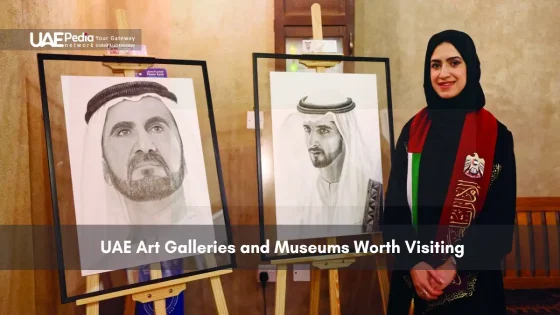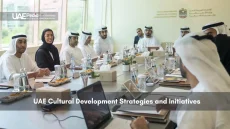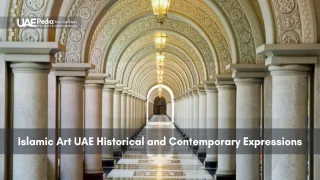Did you know hotels here deploy more robots per guest than Tokyo or Singapore? This surprising fact reveals how ancient traditions of generosity now thrive through cutting-edge tech. The region’s hospitality scene whispers tales of Bedouin coffee rituals while scanning your face for check-in.
For decades, this market has redefined luxury through bold experiments. Think automated concierges suggesting sunset dune tours, or biometric security systems wrapped in intricate arabesque designs. Even global events like Expo 2020 showcased how heritage and hyper-modernity create unforgettable service.
Hotels here don’t just compete on thread counts or Michelin stars. They blend majlis-style lounges with AI-powered room controls, offering both cultural immersion and frictionless stays. Sustainability efforts like solar-powered resorts prove luxury no longer conflicts with eco-conscious values.
Three elements fuel this evolution:
- Tradition-powered tech: Seamless digital experiences rooted in timeless guest care principles
- Safety as spectacle: Discreet security measures enhancing rather than restricting comfort
- Global-local alchemy: International brands adapting to regional tastes while elevating Emirati hospitality DNA
Exploring UAE Hospitality: A Modern Perspective
Imagine arriving at a desert camp where your host greets you with dates and Arabic coffee—a ritual unchanged for centuries, yet now enhanced by solar-powered AC cooling the tent. This duality defines today’s guest experience, where ancestral generosity meets 21st-century comforts.
Historical Foundations of Guest Welcome
Bedouin tribes once measured their reputation by how well they treated strangers. Travelers crossing harsh sands were offered shelter, food, and protection—values now embedded in service management strategies. Modern resorts echo this ethos through curated experiences like heritage homestays, where guests learn to bake khameer bread while smart sensors adjust room temperatures.
Cultural Significance in Today’s Landscape
Diwaniya gatherings—traditional community forums—inspire hotel lobbies designed for spontaneous conversations. At a Dubai beachfront property, you’ll find elders discussing pearl diving history alongside tech entrepreneurs, all served saffron-infused lemonade by staff trained in cultural storytelling. This commitment to quality transforms transactions into human connections.
One Emirati hotelier explains: “Our grandparents used camel milk to welcome guests. Today, we use facial recognition check-ins—but the warmth remains the same.” Such blending of old and new creates unforgettable moments, proving timeless traditions can thrive alongside innovation.
The Evolution of Hospitality Traditions in the UAE
Step into a lobby where incense wafts between holographic check-in screens—this is how centuries-old welcome rituals meet tomorrow’s tech. Global brands like Jumeirah and Emaar Hospitality Group have reimagined desert hospitality, turning humble homestays into gold-leafed wonders without losing cultural roots.
From Desert Sands to Digital Suites
Remember when travelers slept under goat-hair tents? Today’s resorts weave those memories into marble-clad palaces. At Al Maha Desert Resort, you’ll find private pools beside restored Bedouin artifacts. Staff trained in oral storytelling share pearl-diving legends while IoT systems adjust your room’s humidity.
Threading Heritage Through Innovation
Operations now blend tradition with hyper-efficiency. Take Emaar’s Address Hotels: their “Digital Majlis” lets guests book sunset camel rides via app while sipping cardamom coffee. As one manager told us: “We don’t just build hotels—we code culture into every algorithm.”
| Tradition | Modern Adaptation | Brand Example |
|---|---|---|
| Handwoven textiles | 3D-printed arabesque room dividers | Jumeirah Al Naseem |
| Date harvest feasts | AI-curated dining experiences | Anantara Qasr Al Sarab |
| Camel caravan routes | Augmented reality heritage trails | Emirates Palace |
This sector’s secret? Treating innovation like a spice—enough to enhance, never overpower. Whether through saffron-infused welcome drinks or biometric room keys shaped like ancient coins, the United Arab Emirates proves traditions can evolve without fading.
Digital Transformation and Guest Experience Innovations
What if your hotel room learned your coffee order before arrival? This isn’t sci-fi—it’s reality in luxury suites where AI anticipates preferences through past stays. Local brands now craft experiences where your phone becomes a concierge, unlocking rooms and adjusting lighting before you reach the elevator.
AI, IoT, and Personalized Service Strategies
Hotels deploy smart sensors that track room humidity like desert traders once read sand patterns. Biometric check-ins—think palm scanners styled after traditional henna designs—cut wait times by 70%. Security expert Leon Hendricks notes: “AI threat detection works like a digital falconer, spotting risks before guests notice.”
Voice-activated controls now handle everything from ordering room service to booking sunset yacht tours. At one beachfront resort, IoT-connected minibars restock your favorite dates automatically. These tweaks create seamless stays without stripping away cultural charm.
Balancing Automation with Human Touch
The real magic happens when tech steps back. After smartphone check-ins streamlined by Dubai’s latest innovations, staff greet guests with rosewater towels and personalized itinerary suggestions. One manager explains: “Robots mix cocktails, but our bartenders remember your name and preferred mint garnish.”
Challenges? Some travelers miss front-desk banter. Solution: hybrid models where digital keys coexist with coffee-serving robots programmed to share Bedouin poetry. The result? A sector leading global rankings by blending microchips with micro-hospitality.
Sustainable Practices and Environmental Stewardship in Hospitality
What if your luxury stay powered a solar farm? Properties across the Emirates now blend indulgence with eco-conscious innovation, proving five-star experiences don’t require sacrificing the planet. From palm-shaded resorts tracking carbon footprints to skyscraper hotels cooled by Persian Gulf breezes, sustainability has become the new VIP amenity.
Green Initiatives and Energy-Efficient Buildings
Leading properties chase certifications like Green Key and LEED like they’re Michelin stars. At a beachfront Abu Dhabi resort, seawater-powered AC systems slash energy use by 40% while maintaining perfect 72°F lobbies. One GM shared: “Guests don’t just want Egyptian cotton sheets anymore—they ask about our linen reuse programs and organic date farm partnerships.”
Three strategies redefine operational excellence:
- Water wizardry: Smart irrigation systems using treated greywater to maintain lush gardens in desert climates
- Solar swagger: Rooftop photovoltaic panels powering everything from elevators to espresso machines
- Waste-to-wow: Upcycled materials transforming into art installations and furniture
Abu Dhabi’s pioneering Estidama certification sets regional benchmarks, requiring properties to meet strict energy and water targets. The result? Travelers sip camel milk lattes knowing their stay supports conservation efforts. As one repeat visitor noted: “Luxury feels richer when it respects the dunes and reefs we came to enjoy.”
These green innovations don’t just cut costs—they build loyalty. 68% of guests in a recent survey chose Emirates hospitality brands specifically for their sustainable practices. By weaving responsibility into every thread of the experience, the region cements its status as a forward-thinking travel destination where tomorrow’s standards get tested today.
Security Measures and Workforce Training in Modern Hospitality
What if your hotel key doubled as a DNA scanner? While that’s still sci-fi, properties now deploy iris scanners disguised as decorative lanterns and AI surveillance systems analyzing crowd patterns. These invisible shields protect guest experiences while preserving the leisure business’s welcoming vibe.
Implementing Advanced Digital and Physical Solutions
Biometric authentication now replaces keycards at luxury resorts—your palm becomes the passcode. AI-driven cameras detect unattended bags faster than human eyes, while encrypted networks guard booking details like treasure chests. “We’ve coded Bedouin hospitality into cybersecurity protocols,” says a Dubai security director. Firewalls and facial recognition work in tandem, ensuring both data privacy and personalized service standards.
Comprehensive Training for Evolving Threats
Staff training goes beyond folding napkins. The ASIS Dubai Chapter runs crisis simulations where bartenders practice spotting fake IDs and chefs learn food beverage safety against cyber-physical threats. Housekeepers now train in digital hygiene—wiping down smart mirrors’ data trails alongside physical surfaces.
One front-desk manager shares: “We role-play everything from phishing scams to cultural misunderstandings. Protecting guest experiences means anticipating risks before they bloom.” This vigilance extends to poolside servers who monitor drink safety as carefully as mixology craft—proving security and service standards aren’t rivals, but dance partners in the leisure business.
Market Dynamics and Investment Trends in the UAE Hospitality Sector
Picture skyscrapers with built-in rainforests and underwater suites booked via blockchain—this is where visionary spending meets guest expectations. The Emirates’ accommodation sector now draws $12.5 billion annually in fresh capital, per Mordor Intelligence’s 2030 projections. That’s triple Singapore’s hotel investment pipeline and double Saudi Arabia’s giga-project allocations.
Building Tomorrow’s Travel Hubs Today
Developers aren’t just adding rooms—they’re crafting ecosystems. A recent $4.2 billion resort complex near Abu Dhabi blends floating villas with AI-driven waste management systems. As industry analyst Raya Al-Mansoori notes: “Investors seek destinations offering both Instagram moments and carbon-neutral bragging rights.”
| Country | Annual Hospitality Investment (USD) | Growth Rate (2024-2030) | Key Projects |
|---|---|---|---|
| United Arab Emirates | $12.5B | 8.2% | Marsa Al Arab, Lunar Dubai |
| Saudi Arabia | $6.8B | 7.1% | Neom, Red Sea Project |
| Singapore | $4.3B | 3.9% | Marina Bay Sands Expansion |
| USA | $28.1B | 4.5% | Las Vegas Sphere, Miami Wave |
Three factors fuel this boom:
- Global funds shifting from traditional real estate to experience-driven assets
- Government incentives covering 30% of eco-tech installations
- Surge in business travelers combining conferences with desert glamping
While Paris and Tokyo focus on renovating heritage properties, the Emirates builds hyper-connected hubs. A hotel GM in Dubai shares: “We’re not just chasing occupancy rates—we’re coding loyalty through once-in-a-lifetime moments.” This strategy pays off: 73% of luxury travelers now rank regional getaways above European classics.
To stay ahead, brands must balance spectacle with substance. Solar-powered helipads wow influencers, but seamless service keeps CEOs returning. As competition heats up around the world, the industry’s reputation hinges on marrying ambition with authenticity.
Diverse Accommodation Segments and Evolving Guest Preferences
What if your next hotel stay came with a private chef and a local historian? Travelers today crave experiences as unique as their Instagram feeds—sparking a seismic shift in where they rest their heads. The region’s accommodation scene now resembles a cultural buffet, serving everything from neon-lit skyscraper suites to heritage homes where breakfast arrives via rooftop pulley.
Chain Hotels versus Independent Establishments
Global hotel brands lure guests with pillow menus and points programs, while boutique properties counter with hand-painted tiles and storytelling concierges. A recent survey shows 62% of millennials prefer independent stays for “authenticity thrills”—like learning Emirati cooking techniques from a chef’s grandmother. One Dubai boutique manager quips: “We don’t do minibars—we do midnight date harvest tours.”
The Rise of Alternative Lodgings
Vacation rentals now account for 27% of lodging revenue here, per Colliers International. Travelers trade lobby chandeliers for private villas with plunge pools and curated art collections. Platforms like Deluxe Heritage Homes even offer falconry lessons with bookings—proving personalized beats predictable.
| Segment | Signature Perk | 2024 Growth |
|---|---|---|
| Luxury Chains | AI butlers | +5.8% |
| Boutique Hotels | Cultural mentors | +12.3% |
| Vacation Rentals | Local host networks | +18.9% |
This kaleidoscope of options does more than fill beds—it rewrites hospitality rules. Whether you’re a points collector or a souk explorer, the market now serves your tribe. As one repeat visitor shared: “Last trip, I stayed in a floating villa. Next time? Maybe a restored wind tower house. Why choose when you can taste it all?”
Innovative Technologies Reshaping Hospitality Management
What if your hotel remembered your coffee preference before you even ordered? That’s the reality at properties using neural networks to predict guest behavior. This blend of foresight and frictionless service defines today’s tech-driven landscape, where every interaction gets smoother—and more surprising.
Touchless Check-ins and Biometric Systems
Gone are the days of front-desk queues. Hilton’s Digital Key now lets guests bypass reception entirely—their phones unlock rooms while AI adjusts lighting preferences. Facial recognition systems at Marriott properties scan visitors in 0.3 seconds, matching security needs with seamless arrivals. “Biometrics cut check-in times by 80% while reducing fraud risks,” explains tech lead Amina Khalid.
These systems do more than hurry guests to their rooms. Smart sensors track foot traffic patterns, helping staff anticipate bottlenecks before they form. One Dubai resort uses palm-vein scanners styled like traditional coffee pots—proving even high-tech tools can carry cultural flair.
Virtual and Augmented Reality in Guest Engagement
Accor’s VR concierge lets travelers walk through restaurant menus—hover over a dish, and its ingredients appear mid-air. Business travelers test-drive conference setups through AR overlays, while families explore virtual heritage tours before booking. Emirates’ AR window displays transform airport views into interactive history lessons during layovers.
Behind the scenes, VR training modules prepare staff for rare scenarios—like handling a falconry request during a sandstorm. “We simulate 98% of guest interactions before they happen,” shares a luxury brand trainer. This tech isn’t just flashy—it drives measurable growth, with VR-equipped properties seeing 22% higher satisfaction scores.
Three developments fuel industry evolution:
- Cloud-based management systems optimizing staff schedules in real time
- AI-powered chatbots resolving 73% of guest queries without human intervention
- Blockchain integrations securing loyalty programs against data breaches
As tourism rebounds, these innovations prove essential. They’re not replacing human warmth—they’re freeing teams to focus on crafting moments no algorithm can replicate.
Insights from Industry Leaders in UAE Hospitality
What if your hotel concierge could predict your desert tour wish before you voiced it? That’s the magic happening at properties where data meets cultural intuition. Leaders shaping today’s guest experiences reveal how tradition and tech coexist—like serving cardamom coffee through robot waiters trained by Emirati elders.
Case Studies of Global and Regional Brands
Marriott’s Dubai properties now use AI to match room scents with guest moods—oud for relaxation, citrus for adventure seekers. Their regional VP shares: “Demand for personalized stays drives 40% of our tech investments. But we’ll never replace handwritten welcome notes with chatbots.”
Jumeirah Group’s latest resort tracks guest movement patterns to position storytellers where curiosity peaks. A manager explains: “We embed Bedouin hospitality codes into algorithms. When sensors detect tired travelers, staff appear with rosewater towels—no app needed.”
| Brand | Innovation | Sustainability Effort | Guest Satisfaction Boost |
|---|---|---|---|
| Emaar Hospitality | Blockchain loyalty programs | 100% solar-powered spas | 92% repeat bookings |
| Hilton Abu Dhabi | AR heritage menus | Zero-waste kitchens | 4.9/5 cultural immersion scores |
| Anantara | AI tea ceremony timing | Coral reef regeneration | 87% longer average stays |
Leon Hendricks, security consultant for luxury destinations, notes: “Great hotels now compete on emotional intelligence. Can your facial recognition system spot a homesick guest? Our clients’ systems can—and dispatch a comfort food platter.”
These strategies prove experiences outweigh amenities. As one CEO summarized: “Guests don’t book rooms—they invest in memories. Our job? Engineer moments that feel both cutting-edge and centuries-old.” From AI-enhanced souk tours to carbon-neutral banquet halls, leaders show innovation thrives when rooted in local wisdom.
Looking Ahead: Future Trends and Strategic Reflections
Imagine a resort where your breakfast order syncs with the sunrise prayer call—this seamless fusion defines tomorrow’s guest journey. Properties across the Emirates are scripting tomorrow’s playbook, blending ancestral warmth with algorithms that anticipate needs before spoken. Three forces will reshape the landscape: AI-curated cultural immersion, carbon-neutral infrastructure, and experiences marrying Bedouin soul with Mars-ready tech.
Investment surges signal confidence—analysts project $18B flowing into smart properties by 2030. Developers now prioritize dual-purpose infrastructure: solar-paneled helipads, rainwater-harvesting spas, and AI-powered heritage trails. As Mordor Intelligence’s 2030 report notes, “Guests will choose destinations offering Instagrammable moments and measurable environmental impact.”
Post-pandemic preferences demand fluidity. Expect pop-up desert suites with modular designs, app-free check-ins using palm scans, and staff trained as both cybersecurity experts and coffee ceremony masters. Our analysis suggests travelers will prioritize stays offering “surprise security”—tech that protects without intruding, like biometric room keys styled as traditional amulets.
For stakeholders, the roadmap is clear: invest in staff who code as deftly as they host, partner with local artisans for hyper-authentic touches, and treat sustainability as non-negotiable infrastructure. The future belongs to properties balancing lunar colony innovation with souk-market humanity—where every sensor pulse echoes ancient hospitality codes. Pack your curiosity; the next chapter’s already welcoming you.
Local customs like gahwa (Arabic coffee) rituals and majlis seating areas blend seamlessly with luxury amenities at properties such as Jumeirah Al Naseem. Think dates served on silver platters beside iPad-controlled room settings—tradition meets tech without losing warmth.
Brands like Al Maha Desert Resort lead with solar-powered villas and zero-waste kitchens, while Abu Dhabi’s Qasr Al Sarab uses smart irrigation in its oasis gardens. It’s not just LEED certifications—it’s storytelling through eco-conscious guest experiences.
While Marriott and Hilton dominate business hubs, independents like XVA Art Hotel in Dubai thrive with hyper-local themes. Vacation rentals also surge—Delphine’s desert eco-pods attract travelers craving authenticity beyond branded lobbies.
Emirates Palace’s AI concierge suggests bespoke pearl-diving tours, but real staff handle nuanced requests. It’s about layered service: chatbots manage check-ins, freeing humans to design that perfect Liwa Desert picnic surprise.
Face recognition at Rove City Centre speeds up check-ins, while ADNH’s cybersecurity trains staff against digital threats. Physical safety? Think in-room panic buttons linked to 60-second response teams—discreet but reliable.
With EXPO 2020 infrastructure and Abu Dhabi’s 2030 tourism vision, ROI timelines beat stagnant markets. Projects like Marsa Al Arab add 1,700 keys by 2025—developer incentives and 85% annual occupancy rates make calculators smile.
JA Lake View’s VR tours showcase Bedouin heritage before directing you to its holographic art gallery. The trick? Tech enhances, never overshadows—like using augmented reality to explain spice souk history during chef-led cooking classes.


















